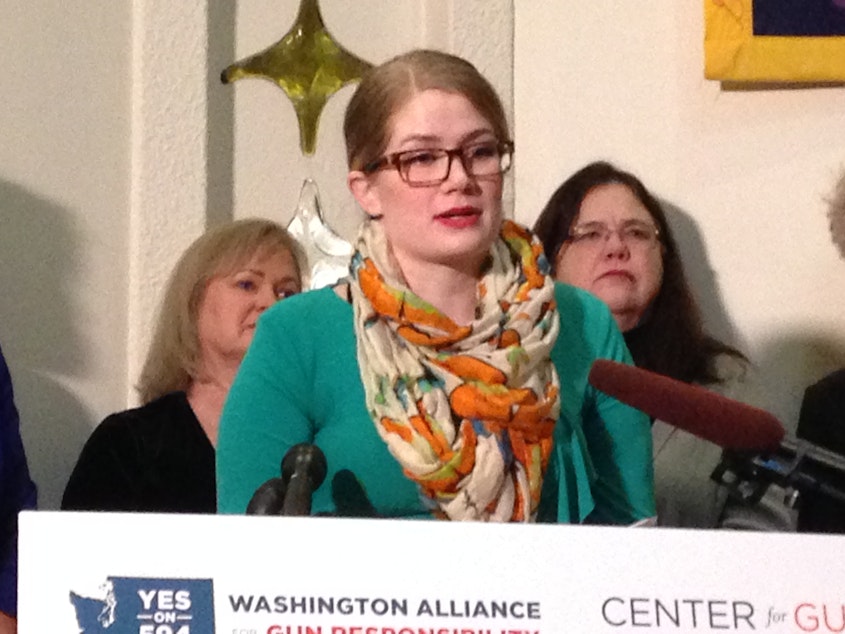New Background Checks Take Effect For Washington Gun Sales

Initiative 594 took effect Thursday, and Washington joined six other states with the broadest background checks for gun sales. Cheryl Stumbo and other members of the Washington Alliance for Gun Responsibility marked the date with a press conference at Plymouth Church in downtown Seattle.
“Initiative 594 is in effect, and today Washington has closed the background check loophole,” Stumbo said as members applauded.
Under the new law, nearly all sales and transfers of firearms, including private sales, must be accompanied by a criminal background check by a licensed firearms dealer.
Supporters of the new law want to seize this moment to pass more legislation in the 2015 legislative session. They'll seek a law allowing “gun violence protection orders” to prevent gun access for people who seem to pose a risk of violence. California recently passed a similar law.
Alliance member Rory Graves said her mother was shot and wounded by her then-husband in 2012. Graves supports a law imposing criminal liability when children get access to someone’s guns.
She said, “In states where these policies are in place, fewer young people commit suicide and many terrible incidents can be prevented. We also support allowing family members and survivors to sign up to be notified when firearms are returned to individuals from whom they’ve been taken by court order.”
The dust hasn’t settled around I-594 yet. Some gun rights supporters plan to hold a rally Dec. 13 in Olympia in which they symbolically exchange guns. The gathering is in protest of I-594’s requirement for background checks with most firearms transfers. They plan to engage in “civil disobedience” under the banner, “I will not comply.” But law enforcement officials said those actions are allowed under I-594 and would not trigger arrests.
Meanwhile, Stumbo – who is a survivor of Seattle’s Jewish Federation shooting in 2006 -- said she’s eager to move forward with new laws after what she sees as decades of inaction. I-594 passed by 59 percent.
“Now that we have a ‘win’ under our belts, we know that there are other things that need to be done,” she said, “and we now have the attention of our lawmakers who realize the will of the people is behind this, so maybe it’s time for them to start acting. “
Dave Workman, senior editor for The Gun Mag published by the Second Amendment Foundation, said supporters of I-594 “seem to have the wind at their backs right now -- or at least they think they do.”
Workman said with Republicans taking control of the state senate, he’s not sure how effective gun control advocates will be. But he said their speed in pushing forward is revealing.
“I don’t think this is the stopping point either,” he said of the legislative priorities. “If they should get all of these agenda items passed, I guarantee they’ll be back next year looking for something else. And at some point you’re going to have to have a dialog if not a confrontation.”
The Second Amendment Foundation opposed Initiative 594 and supported I-591, to restrict background checks. Workman said he believes most law enforcement officials in Washington try not to overstep Second Amendment rights.
But he said one of his biggest concerns with the new language on transfers and proposed gun control protection orders is that they could potentially be abused by “maverick” law enforcement officials. However, Workman noted that some common ground may be found with I-594 supporters on one legislative priority: increased funding and access to mental health services.

